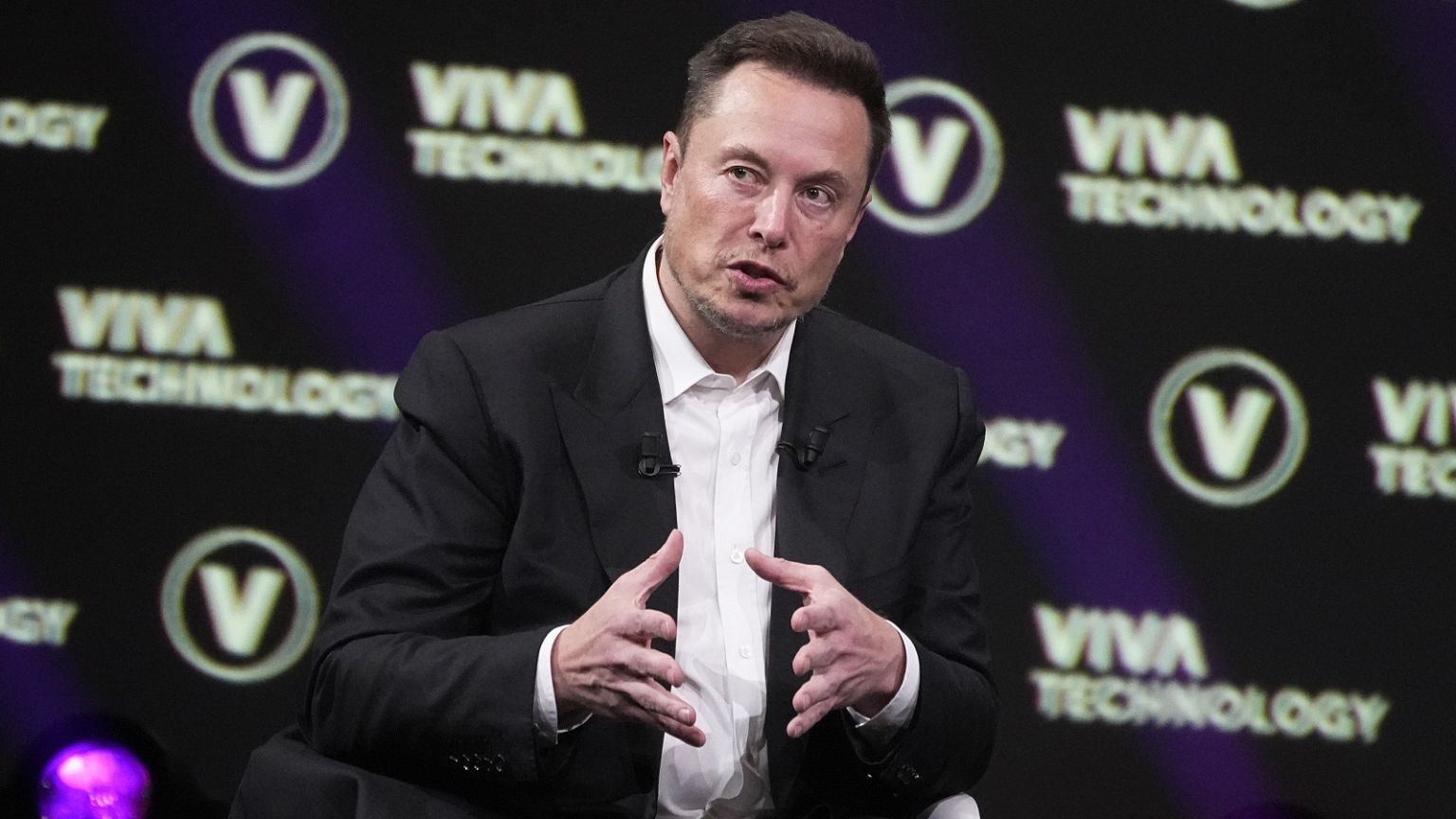
In the mid-1990s, before he became one of the world’s most influential entrepreneurs and the face of multiple multi-billion-dollar companies, Elon Musk was simply a young man with a résumé, two degrees, and a dream. He wasn’t seeking to launch rockets, build electric cars, or implant chips into human brains. In fact, his earliest ambition was far more humble: to get a job at Netscape, one of Silicon Valley’s hottest internet companies at the time.
And yet, the defining twist in his life was not his acceptance—but his rejection. That single “no response” became the accidental catalyst for a technological revolution.
In a revealing interview with Y Combinator, Musk shared a story that now seems almost mythical. “I should point out that I didn’t actually at first intend to start a company,” Musk admitted. “I tried to get a job at Netscape…and I sent my resume into Netscape, and Mark Andreessen knows about this, but I don’t think he ever saw my resume and then nobody responded.”

It was a moment that could have ended there, with disappointment and discouragement. But Musk, 24 at the time, wasn’t finished. He took a more unusual step—he physically went to Netscape’s offices, lingering awkwardly in their lobby, hoping to casually bump into someone, maybe spark a conversation, maybe find a way in.
But even then, the future founder of Tesla and SpaceX hesitated. “I tried hanging out in the lobby of Netscape to see if I could bump into someone, but I was too shy to talk to anyone,” Musk recalled. “So I’m like, man, this is ridiculous. So I’ll just write stuff for myself and see how it goes.”
With that decision, the seeds of Zip2 were planted—not because of ambition alone, but out of frustration, awkwardness, and the quiet confidence of someone who believed he had something to build, even if the world wasn’t asking for it yet.
At the time, Musk was armed with a physics degree from the University of Pennsylvania and a second degree in economics from Wharton. He was also deep into graduate studies in applied physics and materials science at Stanford. Yet even with this impressive academic portfolio, his résumé failed to move the gatekeepers of Silicon Valley. As he once quipped to Kevin Rose in 2012, “I didn’t get any reply. I mean, I had a physics and economics degree from Wharton… but I didn’t have a computer science degree or several years working at a software company.”

It was an era when programming credentials and software experience were gold, and Musk’s multidisciplinary background—while intellectually rich—wasn’t enough to open doors at firms like Netscape.
It’s worth noting the context: Netscape was a tech darling in the early web era, famous for its browser and instrumental in shaping the first wave of mass internet adoption. Its success signaled the internet’s future. That’s why Musk’s interest in the company wasn’t random. He saw it as a vehicle to participate in something big, something transformative. But they didn’t see him.
This rejection, however, became Musk’s origin story. In 1995, just after that Netscape experience, Musk co-founded Zip2 with his brother Kimbal. The company was built to provide online business directories and maps for newspapers—a kind of digital Yellow Pages ahead of its time.
While it might not sound revolutionary today, in the mid-1990s, the idea of offering localized digital content for traditional media was innovative. Zip2 sold software that helped newspapers offer additional commercial services to users, enhancing classified ads and local business engagement.

What started as an improvised project between two brothers soon became something much more. Four years later, in 1999, Zip2 was sold to Compaq for nearly $300 million. Elon Musk personally walked away with $22 million—a fortune for someone in his twenties, and just the beginning of something far bigger.
That same year, with the financial fuel from Zip2, Musk launched X.com, an online banking and payment platform that many investors and analysts initially struggled to understand. The internet was still young, and the idea of digital money movement was novel.
X.com would soon evolve into PayPal, thanks to a merger with another fintech startup led by Peter Thiel and Max Levchin. The company eventually shifted its focus entirely to online payments. Musk, who served as the CEO before being replaced, still maintained a significant stake in the company.
In 2002, eBay acquired PayPal for $1.5 billion in stock. Musk, the largest shareholder, received roughly $180 million from the sale.

All of it—the birth of Zip2, the creation of X.com, the PayPal merger, and Musk’s financial breakout—traces back to a résumé that was ignored and a young man too shy to start a conversation in a company lobby.
It’s a rare kind of trajectory. Most people, when faced with job rejection, look for another job. Musk built an empire instead. The lesson here is not just about perseverance or even talent—it’s about how limitations, whether external (a company that won’t call you back) or internal (a hesitation to speak up), can lead to unplanned innovation. Had someone at Netscape offered Musk a job that day, the world may never have seen Tesla, SpaceX, Neuralink, or Starlink.
And speaking of Neuralink and SpaceX, Musk’s career didn’t stop at fintech. In 2002, shortly after the PayPal acquisition, Musk launched SpaceX with the dream of making humanity multiplanetary. The aerospace company has since become a pivotal force in the space industry, partnering with NASA, launching commercial satellites, and building the Starship rocket with the eventual goal of colonizing Mars. Then came Tesla, which Musk joined in 2004.
Under his leadership, Tesla transformed from a niche electric car startup to a global automotive and energy giant.

Today, Elon Musk is not just a businessman; he’s a symbol of radical technological ambition. From Starlink’s satellite internet constellation to the AI-driven Tesla Autopilot, from the brain-computer interface research at Neuralink to the tunneling systems of The Boring Company—each venture is bold, futuristic, and deeply controversial. And yet, none of it would have happened if a receptionist at Netscape had picked up his résumé.
Ironically, Netscape itself is now a footnote in internet history. Acquired by AOL in the late 1990s and eventually rendered obsolete by competitors like Internet Explorer and Chrome, the company that once rejected Musk faded into obscurity. Meanwhile, Musk continues to shape not only the technology sector but also policy debates on AI, climate, space exploration, and even free speech.
In the annals of entrepreneurial history, Musk’s story stands out because it’s not about smooth success. It’s about redirection. The story of a lobby, a missed opportunity, and a decision to build something instead of waiting for permission is, in many ways, the modern parable of Silicon Valley.
Elon Musk once tried to join someone else's revolution. When they said no, he started his own.
-1754623380-q80.webp)
-1749481098-q80.webp)
-1749482411-q80.webp)
